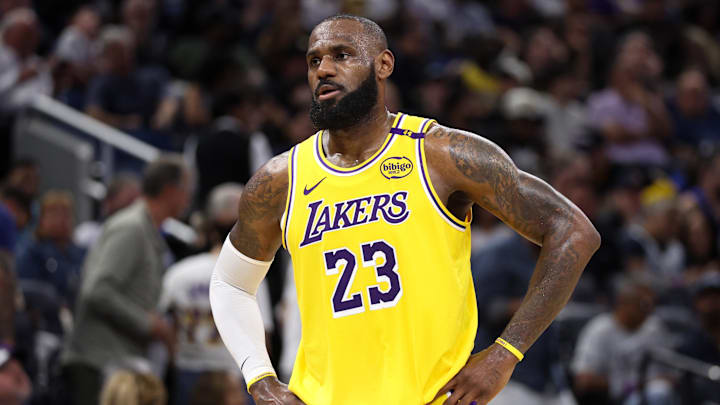The Los Angeles Lakers are a far cry from the team that won 18 of 21 games between mid-January and early March. They're even further from being the group that ranked No. 1 in the NBA in defensive rating during that same time.
For those who are wondering how the Lakers can overcome this run of poor form, the unfortunate truth is that the only way forward is to push on through.
Los Angeles has lost seven of its past 10 games, ranking No. 23 in defensive rating during that time. It's been a disheartening stretch for a team that was on pace to secure the No. 2 seed in the Western Conference, but has now fallen as far as No. 5.
One of the primary reasons for that string of lackluster results has been the extensive list of injuries sustained before and during the aforementioned downswing.
Los Angeles played seven of its past nine games without starting forwards Rui Hachimura and LeBron James. During that same window, it was without Luka Doncic twice, Dorian Finney-Smith on three occasions, and Jaxson Hayes in four different games.
In other words: Every player who has regularly started in 2024-25 but Austin Reaves, who was absent from a game himself, has missed at least two of the past nine outings.
Injuries and reintegration are defining Lakers' current status
Injuries may not be the only reason the Lakers have struggled, but they play a significant role in their inconsistency. They were in the midst of an eight-game winning streak when James went down, which was only five games after Hachimura suffered a knee injury.
Compounded by the occasional absence of other key players, it's hard not to point the finger at injuries as a primary source of the team's overall inconsistency.
In the two games since Hachimura and James have returned to the rotation, the Lakers have been a team of two halves. They were outscored by a combined margin of just one point during the first halves of losses to the Chicago Bulls and Orlando Magic, only to be dominated by a collective score of 141-99 in the second halves.
Perhaps this is less of a rational justification than an optimistic excuse, but one can't help but feel as though key players returning from injuries could explain why the Lakers' quality has declined late in games.
Hachimura has played just 42 minutes between the two games, although he did make a jump from 18 in his return to 24 the last time out. Similarly, James played 31 minutes against Chicago and increased his availability to 38 minutes at Orlando.
Neither player performed at a level that meets the standard they'd set before their injuries, however, which is both to be expected and a rational explanation for some of the Lakers' woes.
An argument could be made that Los Angeles should prioritize its depth in the meantime, balancing out what Hachimura and James can or can't do. There are just 11 games remaining on the regular-season schedule, however, and the Lakers need their starters at full strength for the playoffs.
As a result, for as frustrating as it may be at times, the Lakers are doing the right thing by prioritizing reintegration above all else while they still have time to do so.
